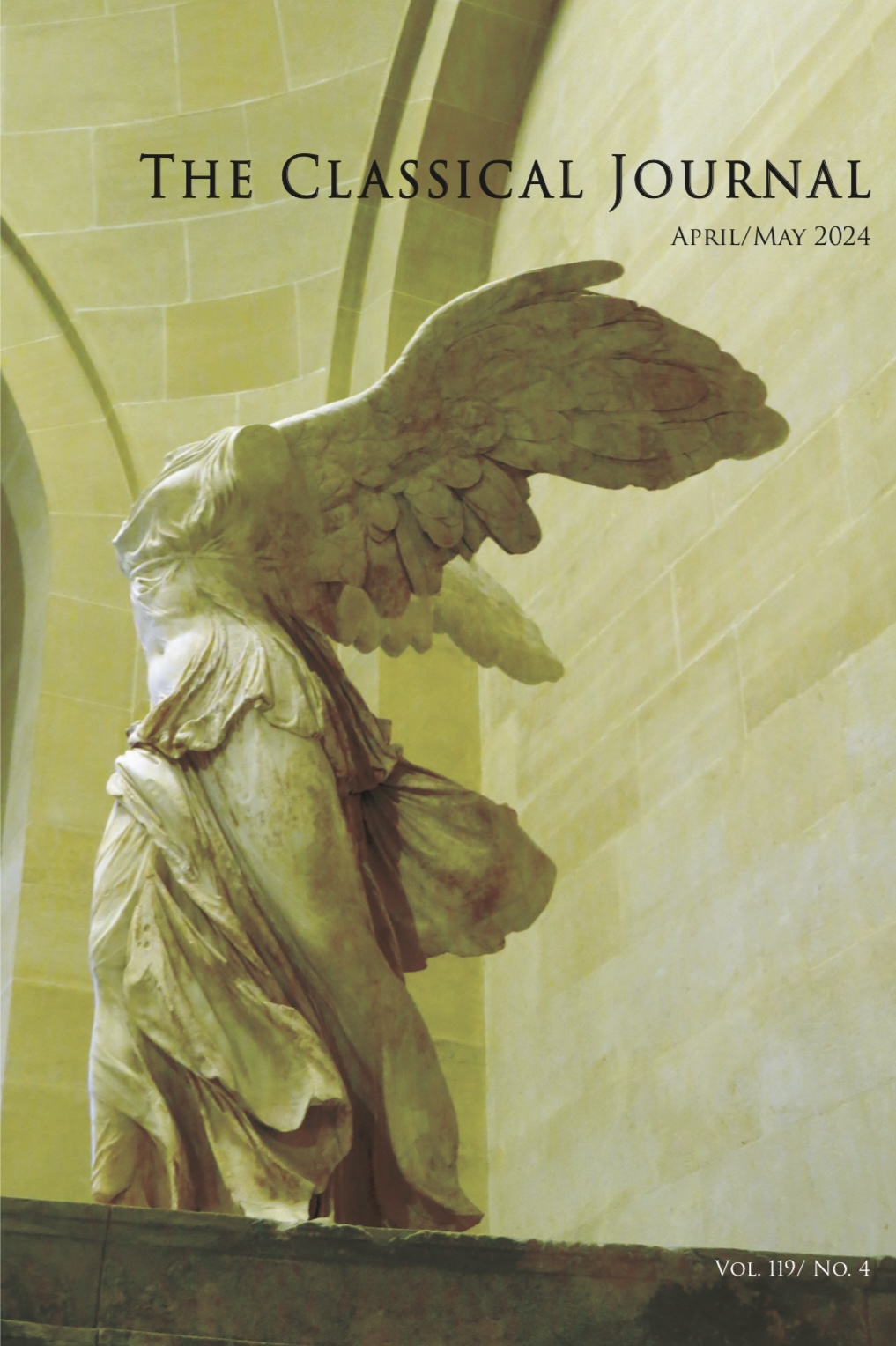115.3/4
Abstracts of Forum Articles
“SHE ISN’T QUIET YET”: MUSIC, MEDEA AND THE MODERN CLASSROOM
This paper explores the use of contemporary music as a vehicle for helping students engage more meaningfully with ancient texts, particularly dramatic texts. Particularly, contemporary music can help students engage in meaningful conversations around the difficult topics that the figure of Medea raises, moving them beyond a simple focus on her status as a child-killer. Ultimately, this article argues for the value of Classics in encouraging thoughtful dialogue around sensitive issues in the modern day, possibly helping students think about their own world in more nuanced and complicated ways.
This paper explores the use of contemporary music as a vehicle for helping students engage more meaningfully with ancient texts, particularly dramatic texts. Particularly, contemporary music can help students engage in meaningful conversations around the difficult topics that the figure of Medea raises, moving them beyond a simple focus on her status as a child-killer. Ultimately, this article argues for the value of Classics in encouraging thoughtful dialogue around sensitive issues in the modern day, possibly helping students think about their own world in more nuanced and complicated ways.
“THE CLASSICS TUNING PROJECT”: COMPETENCIES, VALUE AND VISIBILITY OF THE CLASSICS AT SMALL LIBERAL ARTS COLLEGES
Classics majors acquire valuable and practical skills as they fall in love with the ancient world, but often struggle to articulate to themselves and to others, especially prospective employers or parents, the transferable skills and dispositions provided by their work in Latin, Greek or Classical Civilizations. The Classics Tuning project, supported by a Mellon Faculty Career Enhancement Grant from the Associated Colleges of the Midwest (ACM), endeavored to address these concerns. The project had three components. First, twelve classicists from the ACM met for a day and a half workshop to articulate the learning outcomes and transferable skills associated with an undergraduate liberal arts degree in Classics. Second, using these core competencies as a foundation, a survey was written and sent to classics alumni (615 responses out of 1733 surveyed) to determine what competencies they recognized they had gained through their study of classics, and how they had transferred these to areas outside of academics. Third, the grant funded the creation of a repository of resources connected to the teaching, assessing, and publicizing of these competencies


